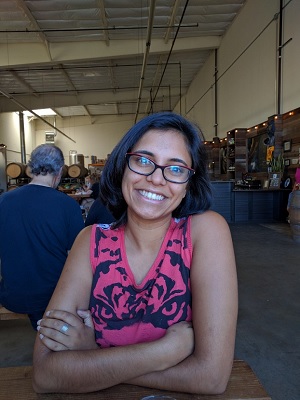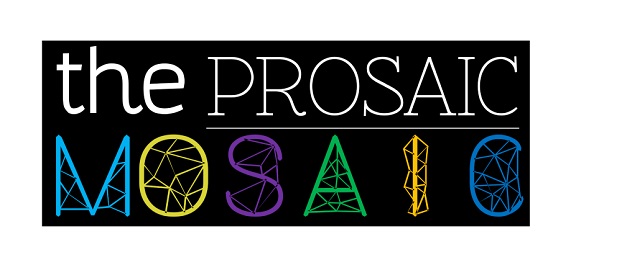 On my first day of graduate school, I was one of two people of color in a room of 15 students and a marine lab of 30 people. I fully suppressed my Indo-American identity, and other than some occasional tokenism I unwittingly participated in, I was only reminded of my ethnicity at the most inopportune moments — like when a student asked me if I was “a Muslim,” or another told me they were impressed that they could not detect an accent in my speech.
On my first day of graduate school, I was one of two people of color in a room of 15 students and a marine lab of 30 people. I fully suppressed my Indo-American identity, and other than some occasional tokenism I unwittingly participated in, I was only reminded of my ethnicity at the most inopportune moments — like when a student asked me if I was “a Muslim,” or another told me they were impressed that they could not detect an accent in my speech.
At the time, I wrote these instances off as petty ignorances to be forgiven — I was in the classroom for a greater purpose: to educate. But I have been re-evaluating these interactions since November 8, trying to understand what motivated these remarks.
In the aftermath of the election, I have been struggling to find a way to both express my pain and support my personal and professional communities. There have been several calls to action, including an incredibly useful document written by former congressional staffers on effectively implementing grassroots strategies to influence Members of Congress. Yet, amidst the blame being placed on fake news sites, social media algorithms, and ineffective political strategy, I feel that a lack of exposure to diverse communities, ideologies, religions, etc. is also partially responsible for the “-phobic” nature of this election.
In the fields of Science, Technology, Engineering & Math (STEM), pledges to enhance diversity have nearly reached platitude status. Myriad articles have been published to increase awareness about the importance of diversity in science, including the challenges we face in achieving this goal and how diversity improves the scientific process and research outcomes. Internal attempts to address this concern have also been made via incentives for faculty members, incorporation of underrepresented groups in the Broader Impacts section of National Science Foundation grant applications, and academic task forces dedicated to ramping up diversity at the faculty level — quite literally, a “minority report.”
A brief scan of faculty web pages on many university websites today would leave you with the impression that these well-intentioned efforts have been only marginally effective. In my field of marine ecology, graduate student offices overflow with female Master’s and PhD students, but you would be lucky if women occupied half of the faculty offices.
Watching the Indo-Jamaican Attorney General of California, Kamala Harris, get elected to the U.S. Senate was a proud moment for me and one of the few immediately positive outcomes of the recent election. While I had always felt connected to the U.S. through the promises that every immigrant parent shares with their child, knowing that someone who I shared cultural experiences with — even if we had never shared them together — meant I had a direct connection to Washington in a way I never had before.
Can I recreate that sense of empowerment and possibility for minority scientists?
Young scientists need to see themselves represented in all aspects of the scientific community — especially in the upper echelons. This not only helps demonstrate that their unique experiences and vantage points improve the scientific process, but could also potentially reduce the isolation many of us oftentimes feel in the academic environment. I want to connect minority scientists across the many rungs of the academic ladder to not only raise awareness of the struggles minorities face, but also to share our stories and cultural perspectives.
To begin sewing this unified thread across the scientific community, I am going to shine a spotlight on a minority scientist every month through a series on Medium entitled, “The Prosaic Mosaic”: an effort to normalize diversity in science.

To do this, I need help: I am looking for female scientists, scientists of color, LGBTQI scientists, and any other underrepresented scientists. Additionally, I am interested in featuring scientists that are working hard to enhance diversity. Because of my field, I am biased towards ocean and climate scientists, but I would love to feature scientists across a large variety of disciplines.
In addition to having a repository of potential interviewees, I am also interested in hearing about what perspectives you think are lacking in addressing diversity within academia/science and how I might address them through this series.
To share your ideas and thoughts, please feel free to contact me via Twitter: @priyology.
I’m looking forward to starting this journey with as much input and community involvement as possible.
* * *
December 2016: Dr. Cristina Torres Duarte
January 2017: Dr. Morgan Kelly
February 2017: Dr. Brian Cheng
* * *
Find the original version of this essay at https://medium.com/@priyology, where you can read more writing by Priya Shukla. Shukla is the ocean acidification technician for the BOAR Research Program at UC Davis’ Bodega Marine Laboratory. She received her BS in Environmental Science and Management (Ecology, Biodiversity, & Conservation) and minor in Oceanography from UC Davis, and MS in Ecology from San Diego State University.












